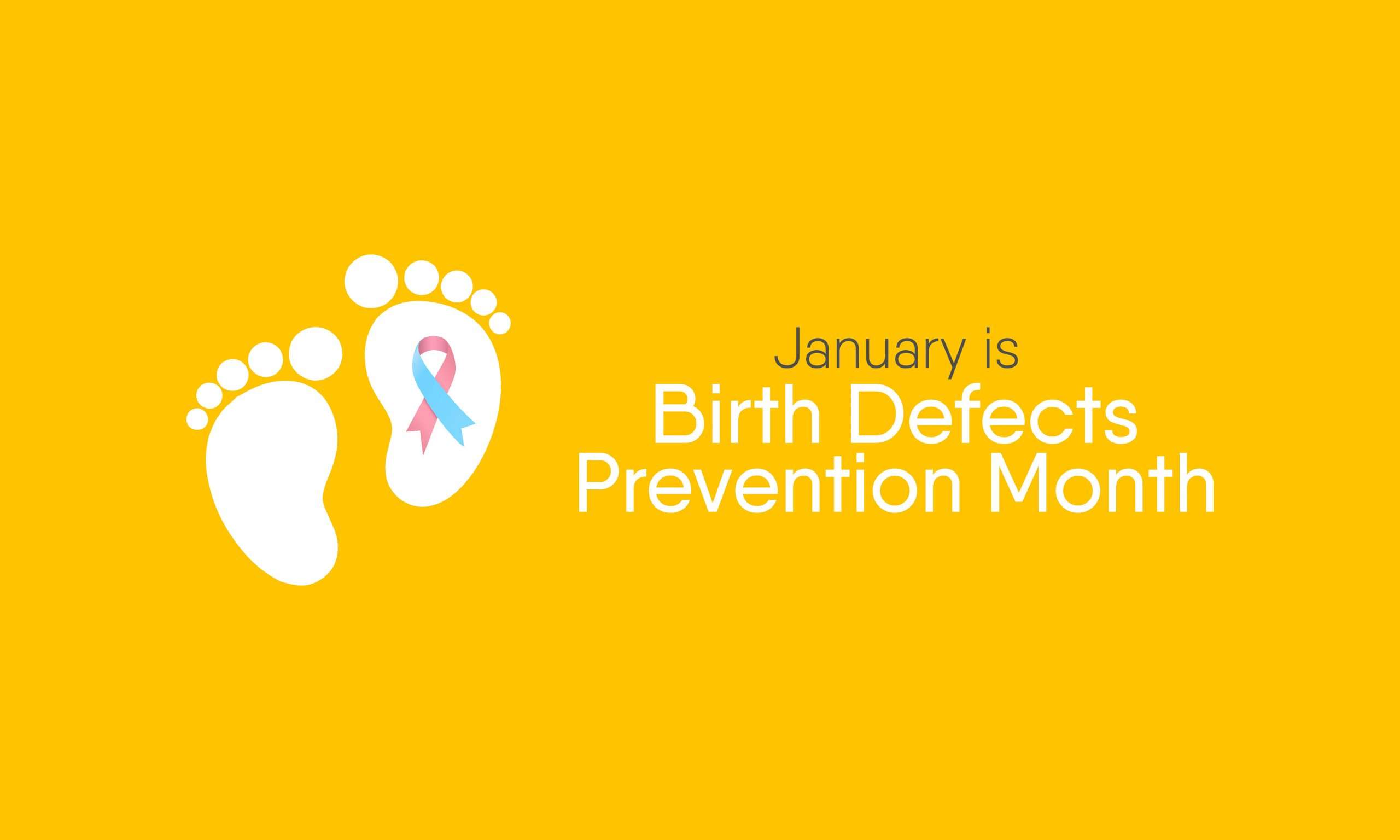The month of January is annually known as Birth Defects Prevention Month. The theme for 2021 is “Best for You. Best for Baby.” We know that not all birth defects can be prevented. But, you can increase your chances of having a healthy baby by doing what you can to be your healthiest self both before and during pregnancy.
According to the Center for Disease Control, there are 5 important steps every mother can take to reduce the chance of delivering an infant with a birth defect. Here are there top 5:
#1: Take Folic Acid Supplements Throughout your pregnancy
If you are pregnant, having a high enough amount of folate in your blood (blood folate concentration) is important to help to prevent a neural tube defect in your developing baby.
#2: Manage pre-existing health conditions before and during your pregnancy
Pre-existing conditions like diabetes and obesity have been attributed with higher rates of birth defects. Getting control of them before becoming pregnancy can be an important way to achieve a health pregnancy.
#3: Know your family history
Knowing the health history for both yourself and your partner is key. If either of you have a family health history of a birth defect, developmental disability, newborn screening disorder, or genetic disease, your baby might be more likely to have one of these conditions as well. This can be very important information to share with your health provider.
#4: Tell your doctor about every medication you take
Taking some medications during pregnancy can increase your babies chance of having a neural tube defect. This is why it is important talk to your doctor before starting or stopping any medications before and during your pregnancy.
#5: Don’t let your body temperature creep up too high
Many women don’t realize that high fevers or high body temperature during pregnancy can increase the chance of birth defects. You can protect your developing babies by protecting yourself from infections, managing fevers, and keeping your core body temperature normal.
These are just a few of the things the CDC recommends. If you are concerned about the possibility of a birth defect talk to your doctor about the risk factors and how to avoid them.





